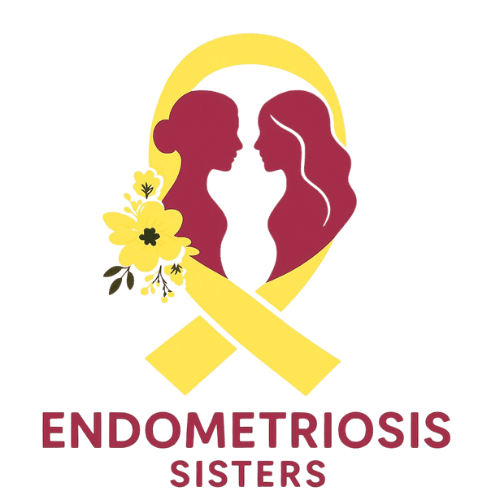Roughly one in ten women of reproductive age experience this disease, yet treatment options remain limited. Current therapies usually involve hormone-based drugs that suppress the menstrual cycle (such as birth control pills or GnRH agonists) or surgery to remove lesions.
While these methods can provide relief, they often come with significant side effects, risks, or only temporary benefit.
In March 2025, a team of scientists at Michigan State University (MSU) published a groundbreaking study in iScience describing how immune cells and lesion cells “talk” to each other in endometriosis.
By mapping these cell-to-cell communications, researchers identified potential new pathways that could be targeted with non-hormonal therapies. If successful, this could revolutionize endometriosis care by offering treatments that reduce inflammation and pain without interfering with fertility or causing hormonal side effects.
Key Findings:
- Immune–lesion communication: The study showed how immune cells (macrophages) and endometriosis lesion cells exchange signals that drive disease growth.
- Mapping the “conversation”: MSU created a baseline map of these signals, identifying specific pathways involved in inflammation and lesion survival.
- Therapeutic targets: These communication pathways could serve as drug targets for non-hormonal therapies, unlike current treatments that rely on suppressing hormones.
- Game-changing potential: Non-hormonal drugs could help patients who cannot or do not want to use hormones (e.g., those trying to conceive or are sensitive to side effects).
Background: Why New Treatments Are Needed
Endometriosis is notoriously difficult to manage. Current standard treatments fall into two main categories:
- Hormonal therapies – These reduce estrogen levels to suppress the growth of endometrial-like tissue. Examples include birth control pills, GnRH agonists, and progestins. While effective for some, they often come with drawbacks such as bone loss, hot flashes, mood swings, or weight gain. Importantly, they prevent pregnancy, which is problematic for patients hoping to conceive.
- Surgery – Laparoscopic surgery can remove endometriosis lesions, but recurrence rates are high (many women need multiple surgeries in their lifetime). Surgery also carries risks and recovery time.
Because of these limitations, patients and clinicians have been calling for non-hormonal alternatives – treatments that directly target the disease without shutting down the reproductive system. The MSU research addresses exactly this need by focusing on the immune system’s role in endometriosis.
The MSU Study
The MSU researchers focused on macrophages, a type of immune cell that plays a central role in inflammation. In endometriosis, macrophages infiltrate lesion sites and release chemical signals (like cytokines and growth factors) that can:
- Promote inflammation, causing pain and tissue damage.
- Support the survival and growth of lesion epithelial cells.
- Recruit additional immune cells, creating a feedback loop of chronic inflammation.
Using advanced techniques, the scientists analyzed endometriosis tissue samples and tracked how macrophages and lesion epithelial cells communicate. This “cross-talk” was mapped out in detail, showing which molecules are involved and how they interact.
The result was a baseline atlas of immune–lesion interactions. Think of it as drawing a conversation map: macrophages “say” certain things (release signals), and lesion cells “respond” in ways that keep the disease going.
Pathway to Non-Hormonal Therapies
The central achievement of this study is that it pinpoints new therapeutic targets. Instead of altering hormones, future drugs could:
- Block specific signals that macrophages send to lesions.
- Reduce inflammatory pathways that drive pain and scarring.
- Disrupt the survival mechanisms that let lesions persist.
For example, if macrophages release a molecule that “tells” lesion cells to grow, a drug could be designed to block that molecule or its receptor. This is similar to how some cancer immunotherapies work – by interrupting harmful cell-to-cell signaling.
Such treatments could be particularly valuable for:
- Women trying to conceive, since they wouldn’t suppress fertility like hormone therapies do.
- Patients intolerant to hormones, who experience severe side effects or contraindications with current drugs.
- Long-term disease management, as non-hormonal options might allow safer, continuous use compared to repeated surgery or prolonged hormone suppression.
Implications for the Future
This research is an important first step. It doesn’t deliver a drug yet, but it provides the roadmap needed for drug development. Pharmaceutical scientists can now test compounds that interfere with these newly identified pathways.
- Short-term impact: Increased awareness that immune signaling, not just hormones, is a key driver of endometriosis.
- Medium-term impact: Pre-clinical studies (in mice or cell cultures) testing drugs that target macrophage–lesion interactions.
- Long-term impact: Clinical trials of non-hormonal therapies, offering patients a completely new class of treatments.
For patients, this represents hope. The painful reality of endometriosis is living with a disease that often resists treatment. Knowing that researchers are working toward solutions that could one day allow symptom relief without hormone suppression is a major step forward.
Conclusion
The MSU 2025 study moves beyond the traditional hormone-focused view. By revealing how immune cells and lesion cells “talk,” scientists have uncovered new targets for treatment. These findings pave the way for non-hormonal therapies that could transform care for millions of women worldwide.
While more research is needed before new drugs reach the clinic, this work lays a strong foundation. It reminds us that innovation often comes from looking at old problems in new ways – in this case, shifting the focus from hormones to immune cell interactions. If successful, these efforts could finally give patients safer, more effective, and fertility-friendly options for managing endometriosis.
References
- Michigan State University. (2025, March 21). MSU researchers make progress toward non-hormonal treatment for endometriosis. MSUToday. Retrieved from https://msutoday.msu.edu/news/2025/non-hormonal-treatment-for-endometriosis
- Khoufache, K., Colón-Caraballo, L. D., & MSU Endometriosis Research Team. (2025). Mapping macrophage–epithelial cell interactions in endometriosis lesions: Toward non-hormonal therapeutic strategies. iScience, 26(3), 108345. https://doi.org/10.1016/j.isci.2025.108345 (Original research article in iScience)

